MAPS CORE STAFF
Maaike Bleeker, Nanna Verhoeff and Laura Karreman together form the core staff committee of MAPS. They act as mentors for the students, they give advice to both students and teachers in the programme, and they make sure that the programme continues to develop and improve.
PROF DR M AAIKE B LEEKER is Professor of Theatre Studies in the department for Media and Culture Studies. Her research focuses on processes of perception and meaning making in performance, dance, theatre and the arts, as well as in science and in public life. She combines approaches from the arts and performance with insights from philosophy, media theory and cognitive science. Her current work is about corporeal literacy, contemporary dramaturgy, robotics, and posthuman approaches to knowledge transmission. Maaike is project leader of the research project Acting Like a Robot: Theater as Testbed for the Robot Revolution. Previously, she was partner in international research projects about new media dramaturgy, social robots, Spectacular Astronomy, posthuman performativity (RockBody), digital archiving of artistic work, and artistic creation processes.
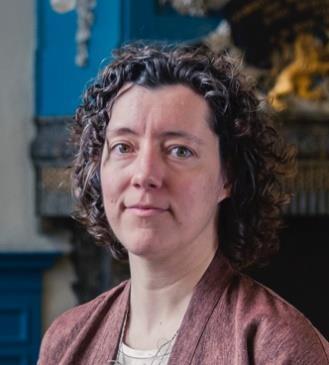
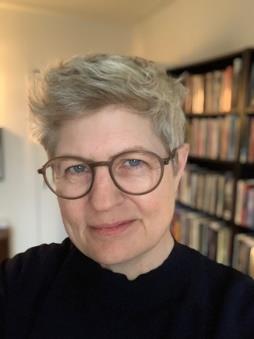
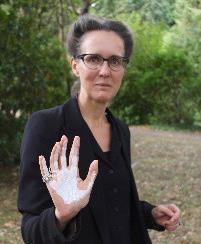
Courses: State of the Art; Body, Mind Method; Corporeal Literacy.
is Professor of Screen Cultures & Society in the Department of Media and Culture Studies. Nanna specialises in the analysis of screen technologies and practices, with a key interest in contemporary transformations in screen and interface culture. She has published on (early) cinema, mobile screens, and location-based media, art installations, urban media art, and media architecture. Her current research focuses on the development of concepts and methods for the analysis of performative technologies, situated arts and media, and urban interfaces. She is initiator of the interdisciplinary research group [urban interfaces] that brings together researchers that investigate location- based media, art and performance in urban, public spaces, and her research is part of the platform Transmission in Motion. For possibilities to do a research internship with [urban interfaces], Transmission in Motion, the Creative Humanities Academy, or partner organizations, you can contact Nanna.
Course: State of the Art
is Assistant professor in the Department of Media and Culture Studies. She is the programme coordinator of MAPS. She also teaches in the MA Contemporary Theatre, Dance and Dramaturgy. She researches the role of embodied knowledge in dance transmission practices, the role of digitization in performance archives, and epistemological questions that relate to new notions of ‘dance and performance knowledge’. Laura obtained her PhD in Performance Studies from Ghent University (2017). She is co-editor of Performance and Posthumanism: Staging Prototypes of Composite Bodies (Palgrave Macmillan 2021). She also published in Futures of Dance Studies (The University of Wisconsin Press, 2020), Contemporary Choreography (Routledge 2017), and Performance Research. Laura is a member of the UU Research Group Transmission in Motion, in which she relates to research themes and topics such as dramaturgy, somatechnics and 'Mobilizing the Archive'.
Courses: MAPS Research Lab, Research Design MAPS
■ ■ ■
■ ■ ■
PROF . DR . N ANNA V ERHOEFF
■ ■ ■
DR L AURA K ARREMAN
■ ■ ■
D R D ÉSIRÉE F ÖRSTER
Dr. Désirée Förster is an assistant professor for Media and Culture Studies, with an interest in media aesthetics, affect, and experimental practices. She graduated from the Institute for Arts and Media, the University of Potsdam with her thesis “Aesthetic Experience of Metabolic Processes”. Taking on the perspective of process philosophy and media aesthetics, she investigates here the impacts of liminal experiences on human subjectivity. During her Ph.D. and her post-doctoral position at the University of Chicago, she conducted several researchcreation projects together with artists, designers, and academics from Concordia University (CA), Arizona State University (US), and IXDM, Basel (CH). She studies Aesthetics, Media Ecologies, Affect, Haptic Media, Phenomenology, Process Philosophy, and Immersive Environments.
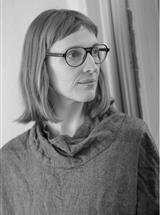
Course: Urban Interfaces
■ ■ ■
D R . R ICK D OLPHIJN is Associate Professor in the Department of Media and Culture Studies. Rick is interested in the contemporary both in theory and in the arts. He holds an Honorary Associate Professorship at the University of Hong Kong and is a regular guest at post-academic art institutes in and around the Netherlands. He is interested in material culture and Posthumanism, and always enjoys working with the concepts of Gilles Deleuze, Felix Guattari and Michel Serres, as they resonate between thought and creativity. Among his books are Foodscapes (2004); New Materialism (with Iris van der Tuin, 2012); This Deleuzian Century (ed. with Rosi Braidotti, 2014); Philosophy After Nature (ed. with Rosi Braidotti, 2017); Michel Serres and the Crises of the Contemporary (Bloomsbury 2019, ed.) In 2021 he published the Philosophy of Matter: a Mediation. The Dutch and Korean translations are due for 2022. Rick Dolphijn can be approached for tutorials and thesis supervision.
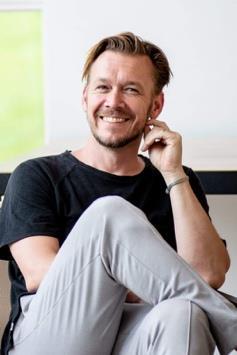
■ ■ ■
D R K ARIN VAN E S is Assistant Professor in the Department of Media and Culture Studies and project lead Humanities at Utrecht Data School. Her work has been published in outlets such as Media, Culture & Society, Television & New Media, M/C Journal and First Monday. With Mirko Tobias Schäfer she is coeditor of The Datafied Society: Studying Culture through Data (AUP, 2017). She is currently coediting Situated Data: A Cultural Inquiry (AUP 2022) with Nanna Verhoeff and a special issue on Critical Technical Practices for Convergence with Jonathan Gray and Daniela van Geenen. Karin’s current research is in the field of critical data studies and television and platform studies. Course: Data-Driven Research and Digital Tools
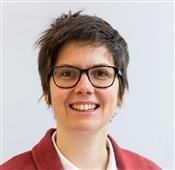
MAPS TEACHING STAFF
D R . D AVID G AUTHIER
I am a media artist and Assistant Professor of Computational Media and Art in the Department of Media and Culture Studies. I originally come from Montréal and have been working and living in Europe for many years. I have a background in Mathematics, Media Arts and Sciences, and Cultural Analysis. My academic work mainly revolves around concepts and practices of computation. I am particularly interested in computational acts, the way machines and software are made to perform and execute. I find these acts fascinating, not only functionally in our daily lives but moreover when they are mobilised as expressions in the arts, which somehow challenge our age-old ways of sense making. My work as an artist is mainly sound oriented. I tend to stage encounters with materials that do not necessarily operate within the same lyrical register. My installations and performances typically comprise ritualistic and ceremonial forms where these encounters take hold. https://davidgauthier.info
Course: Between Media, Art and Performance
is Assistant Professor in the Department of Media and Culture Studies and works on new media and digital culture. Coming from film and new media studies, his current primary field is game studies. He teaches and writes about game culture and history, fan and participatory culture, play as methodology, deviant play, transmedia and critical media literacy. René is a founding member of Utrecht University’s Center for the Study of Digital Games and Play. His book Battlefields of Negotiation: Control, Agency, and Ownership in World ofWarcraft was published by Amsterdam University Press in 2012. He is co-editor of The Playful Citizen: Civic Engagement in a Mediatized Culture (AUP, 2019) and was recently involved in the research project The Preservation of Digital Games as Dutch Cultural Heritage in collaboration with the Netherlands Institute for Sound and Vision.
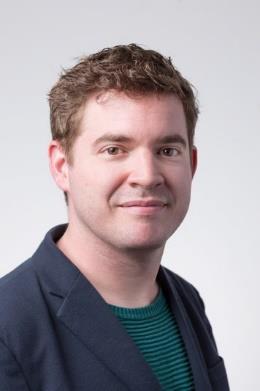

Course: Rules of Play
D R J UDITH K EILBACH
is Associate Professor of Media Studies. She holds a PhD in film studies from the Freie Universität Berlin and has done extensive work in the field of television studies with a focus on media archaeology and transnational television infrastructures. Previous projects have also been related to memory studies and public history. Her current research projects focus on sustainability in the media industries, data-driven screenwriting and transnational media events in television history. She is a member of the Global Green Media Network and leader of the Sustainable Media workgroup of the European Network of Cinema and Media Studies (NECS). At Utrecht University she cocoordinates the Media Industries, Infrastructures and Institutions (MI3) research initiative.
Course: Histories, Archaeologies, Archives
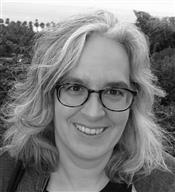 ■ ■ ■
■ ■ ■
D R . R ENÉ G LAS
■ ■ ■
■ ■ ■
■ ■ ■
D R . R ENÉ G LAS
■ ■ ■
D R . M ICHIEL DE L ANGE
Is Assistant Professor in the Department of Media and Culture Studies; co-founder of The Mobile City, a platform for new media and urbanism; and of the [urban interfaces] research group at Utrecht University. He studies (mobile) media, urban culture, identity and play. Currently he is co- lead of the NWO funded project ‘Designing for Controversies in Responsible Smart Cities’, investigating how controversies about smart city technologies can become productive media for engaging citizens in discussion about their future cities. In 2010 Michiel completed his PhD dissertation ‘Moving Circles: Mobile Media and Playful Identities’ at the Erasmus University of Rotterdam (Faculty of Philosophy). It is about the way mobile media technologies shape personal and cultural identities in the city. De Lange is trained as a cultural anthropologist (MA, University of Amsterdam), and studied
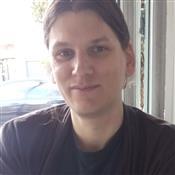
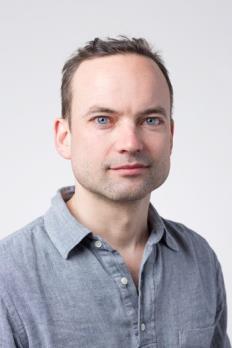
Industrial Design and Management at the TU Delft. He regularly speaks and organizes events about media technologies in the city.
Course: Urban Interfaces
■
D R . T HERON S CHMIDT is Assistant Professor in Performance Studies. His areas of research and teaching include art and activism, creative pedagogy and experiential learning, and contemporary forms of political theatre and performance. His academic research is rooted in several decades of ongoing practice as a multidisciplinary artist in Europe, the USA, and Australia, as well as prior work supporting activist movements and art for social change. He is committed to modes of research, learning, and making that are collaborative and experiential, alive in the thick of things and responsive to the complex and contested entanglements of diverse bodies, politics, histories, and alliances. In addition to his academic research, he has written widely about contemporary performance and live art for a variety of publications, including magazines and artist books, and also as part of innovative critical writing projects that foster interaction between audiences, artists, and critics.
Course: Between Media, Art and Performance
■ ■ ■
P ROF . DR . I RIS VAN DER T UIN is Professor of Theory of Cultural Inquiry in the Department of Philosophy and Religious Studies. Trained as a feminist epistemologist, Iris works at the intersection of philosophies of science and the humanities (including science and technology studies), cultural theory, and cultural inquiry. These fields meet in humanities scholarship that traverses the ‘two cultures’ and reaches beyond the boundaries of academia out to the field of art and culture. Iris is interested in the new and interdisciplinary humanities and in so- called ‘SoiTL’: The Scholarship of Interdisciplinary Teaching and Learning. Her research is part of the research platform Transmission in Motion. She is currently writing a book on the philosophy of Susanne K. Langer. Together with Nanna Verhoeff, Iris has initiated the Creative Humanities Academy that brings together humanities researchers and creative practitioners for knowledge exchange and offers teaching for professionals in the cultural field. Iris is also director of the School of Liberal Arts.
Course: MAPS Research Lab

■ ■
■
■ ■
is Assistant Professor in Media, Arts, and Society in the Department of Media and Culture Studies. She also conducted postdoctoral research at the Tilburg Institute for Law, Technology, and Society. Her PhD dissertation, “Clocked!: Time and Biopower in the Age of Algorithms” was awarded a national dissertation prize by the Praemium Erasmianum Foundation in the Netherlands in 2019. Temporality and technology are central themes in her work, and she is trained in media and performance studies, as well as gender and postcolonial theory. Evelyn Wan can be approached for tutorials and thesis supervision.
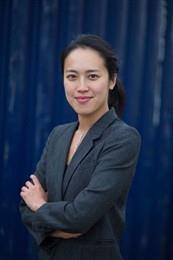
is Associate Professor in the Department of Media and Culture Studies, specializing in Digital Media and Game Studies. He co-coordinates the Green Media Studies Initiative and corresponding book series together with Prof. dr. Joost Raessens and organizes the annual Game Research summer school. Stefan obtained a PhD (2010) in media studies from Bonn University and his venia legendi from Bayreuth University (2015) in Germany. He has been a visiting scholar (2005) and fellow (2006- 2010) at the Comparative Media Studies program at MIT and worked in the digital games industry, most notably at Codemasters (2005) and Nintendo of Europe (200709). Stefan’s research covers a variety of topics, most notably media/games and sustainability as well as methodological implications of creative practice research, software affordances and tool criticism. His latest book “Making Games: The Poetics and Politics of Game Creation Tools” was published by MIT Press in 2021.
Course: Play, Perform, Participate

■ ■ ■ D R . E VELYN W AN
■ ■ ■ D R . S TEFAN W ERNING
MENTOR AND STUDY ADVISORS
Your mentor will be assigned to you at the beginning of the first course period (Block 1). Your mentor will be your go-to person with questions about your study progress, your choices of electives and decisions about going abroad or following an internship. Next to the Study Advisor (see below), you can also contact your mentor in case of academic or personal problems that interfere with your studies. During the introduction week before start of the first course period you will meet your mentor.
In the first weeks of the second course period (Block 2) of year 1 you will make an individual appointment with your mentor to discuss how the first block went, and to discuss your plans and ambitions. In the first year, you also contact your mentor at the end of Block 3, to make an appointment at the beginning of Block 4. In this meeting you discuss your study progress, your plans for the second year, and your first ideas for the topic of your thesis.
Please approach the study advisor when there are personal circumstances which might influence the progress of your study. Contact the study advisor in a timely manner when you experience personal problems. Maaike Wouda is the study advisor of MAPS.
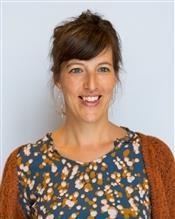
Facing issues with your studies? The study advisors are there to help and support you to successfully complete your degree. They can act as confidential counsellors, advise on issues regarding illness and special circumstances and, together with you, look at the possibility to cope with the studies while dealing with disabilities or chronic illnesses. They can also help with specific arrangements and procedures, such as complaints, objections and appeals. You can find more information on the university website, at: https://students.uu.nl/en/hum/maps/contact/study-advisor
Other student support and well-being
The UU offers all kinds of support in the field of wellbeing. Good health and wellbeing are not only crucial ingredients for a good and effective student life, they contribute to a rewarding professional life after your studies as well.
That is why we offer you the opportunity to focus on the personal side of professional development in addition to the academic development you are going through.
In that context, we offer various (group) activities to support your well-being that help with staying resilient and flexible, capable of dealing with stress, procrastination and perfectionism, focusing on what is important and being able to make decisions.
Take a look at our website for the training offer:
https://students.uu.nl/en/hum/personal-development/wellbeingtrainers
■ ■ ■ M
W
AAIKE
OUDA
THIS PROGRAMME
This Research Master's programme in Media, Art and Performance Studies is an interdisciplinary and internationally oriented research-based programme, which offers an advanced training in academic research skills appropriate to investigate today's highly dynamic and interdisciplinary field of media, visual arts and performance.

Contemporary media, art and performance increasingly play with, and transcend disciplinary boundaries. Intermedial and performative practices both produce and critically investigate cultural transitions in today’s mediatized and performative culture. Such synergies invite to explore how emerging forms of media, art and performance –while historically and culturally embedded - interact with and relate to social and cultural transformations. As a student of this programme, you will be introduced to, and specialise in new research areas and theories, necessary for investigating emerging media, performance and contemporary art forms within today's rapidly changing culture. In relation to this you will also reflect on the role of the Humanities in both academic and public debates.
Central concerns in this programme are, amongst others: the role and meaning of (visual) media in a mediatised society, inter- and transmedial practices in theatre, dance, film, television, digital media and visual arts; spectator- and usership, the performative turn in contemporary arts and media; technology, materiality and corporeal literacies; the digital turn in audio-visual heritage and art; game, play and (h)activism; changing institutions, mobile and/or location-based media, urban interfaces, navigational screen-based practices; art and media ecologies.
THIS PROGRAMME AND OUR SOCIETY
In this age of selfies, datafication, (self-)staging and re-staging, and playful learning, you will examine how various media, art forms, and performance have been used for critical analysis, civic engagement, entertainment and educational purposes. You will do this by asking how digital technologies, dramaturgical and artistic strategies alter ways of dealing with knowledge production and distribution, and how these transitions have contributed to, and ask for new methods and strategies of research.
We approach this broad field from a range of comparative and intermedial perspectives, focusing primarily on the dynamics of change and exchange between media, contemporary arts and performance within a culture and society in transition. In this programme, you will reflect on questions such as how media have developed from the times of early cinema up to current new media art; how the definition of 'live' has changed alongside these mediatised cultural forms. How has the performative turn changed the ways we think about audiences? How do media technologies facilitate new strategies of self-staging and social performance? What is the influence of media and technology in the way we curate and educate in museums, archives, schools and other cultural and educational institutions? How can practice-based research contribute to theory-based research?
LEARNING GOALS AND OBJECTIVES
This Research Master will train you as a researcher within the field of Media, Art and Performance Studies, to either prepare you for a PhD position, or for research-oriented positions in professional contexts of cultural institutions such as archives, museums, art institutions, theatres, for education, (non-)governmental organisations, or in creative industries.
After completing the programme:
■ you have acquired knowledge of the history as well as the state of the art in media, visual art and performance practice and research, as well as insight in current public, academic and critical debates;
COURSE PLANNER: You will find more information on this programme’s courses in the Course Planner: https://cursusplanner.scien ce.uu.nl/english/study/MAMAPS-16

■ you know how to employ an intermedial and (historically-informed) comparative approach for studying emergent media, art and performance practices, and how to use and develop research methodologies related to this perspective;
■ you have the skills to critically investigate relations and transitions in the field of media, art and performance and are trained to communicate research outcomes to fellow researchers and other professionals, as well as to a general audience;
■ you are equipped with the advanced knowledge level and research skills necessary to participate in the academic and professional field;
■ you have the ability to effectively communicate theoretical insights that will contribute to the field, as well as having broader social and cultural relevance;
■ you are able to reflect upon the social and ethical implications of developments within the field of media, art and performance and contemporary humanities research.
PROGRAMME INFORMATION
1. Compulsory Courses
For the full program and course descriptions, see https://students.uu.nl/en/hum/maps/curriculum.
2. Electives
a. MAPS Electives
MAPS offers elective courses in each course period. For up-to-date course descriptions of electives, also see https://students.uu.nl/en/hum/maps/curriculum.
MAPS electives are:
■ Histories, Archaeologies, Archives (Block 1-4)
■ Rules of Play (Block 1)
■ Ecologies of Curation (Block 2)
■ Urban Interfaces (Block 3)
■ Corporeal Literacy (Block 4)
b. Electives ICON and other
You can also choose from electives offered by other RMA programmes within the Faculty of Humanities. Check the current offerings at https://rm-electives-hum.sites.uu.nl. You may also follow courses at other universities. For regulations about approval of courses outside of our programme, see https://students.uu.nl/en/hum/maps/practicalinformation/academic-policies-and-procedures. Before you register for courses elsewhere, first discuss your plans with your mentor or the programme coordinator.
3. Tutorials
Tutorials are course modules of 5EC, in which you work on an individual research topic or in collaboration with other students or researchers with supervision by a MAPS staff member. For research profiles and suggested topics for tutorials, see the bios of our staff members above. Preferably before registering and definitely before the course period start, you will approach the instructor you want to work with by email and check their availability to supervise you. In the first week of the course period you will develop your research plan and agree with your supervisor on the assignment – research paper, developed research proposal, conference paper, reading report, etc. – that will be graded at the end of the tutorial. This plan will be written down in the Tutorial Protocol, signed and archived by your supervisor. At the end of the tutorial, your supervisor fills out the Tutorial
Evaluation Form and submits this by sending it to programme coordinator Laura Karreman, who will register the grade.
You can take a maximum of one tutorial per academic year, which means 1 in total when going abroad (profile 3), and 2 in total when choosing profile 1 or 2.
Suggested tutorial topics are: Performance, Science and Technology; Performing Robots (Maaike Bleeker); Data/Culture (Karin van Es); Aesthetic Resilience (Marijke de Valck); The Sustainable Imaginary Today (Rick Dolphijn); Game Lab (Stefan Werning); Green Media, Games/VR for Change (Joost Raessens); Dance and embodied knowledge; motion capture and performance (Laura Karreman); Food Media (Eggo Mueller); Urban Interfaces; Spatiality/Temporality in Media, Art and/or Performance (Nanna Verhoeff); Continental Philosophy; The Work of Henri Bergson; New Materialism; The Work of Karen Barad (Iris van der Tuin).
INTERNSHIP
An internship in the RMA is a valuable addition to your training as a professional researcher. It allows you to experience working as an embedded researcher, either within academia, within a research institute or external research project, or in the context of an external professional organization or cultural institution. During the internship, you obtain the opportunity to develop your research skills in a professional (research) environment, to further develop your personal professional research identity, and reflect on your role as a researcher in relation to the (wider) professional field. A clear research component has to be the focus of the internship.
For more information, see; Internships - Media, Art and Performance Studies - Students UU
THESIS
Your programme will conclude with a thesis (30 EC) in which you apply the skills, knowledge and insights that you have acquired during the Research MA. In the thesis trajectory, you will conduct independent research and write an academic research thesis. The Research MA thesis is a scholarly research project that takes the form of a well- researched thesis project within the discipline of Media, Art and Performance Studies, written individually and on a relevant subject chosen by the student and agreed upon with the supervisor. For more information, see the MAPS student website: https://students.uu.nl/en/hum/maps/curriculum/masters- thesis
DO YOU WANT TO GET INVOLVED?
Curriculum committees are representative bodies comprised of both students and teaching staff. The committee is responsible for advising on the Education and Examination Regulations (EER) and its annual evaluation, for monitoring the quality of education and for addressing problems that might arise. They advise the Board of the study programme and the Dean of the Faculty of Humanities on all teaching-related matters.
Student opinion plays a key role in the tasks of the curriculum committees. Through programme evaluations and course evaluations, curriculum committees review academic matters. Half of the committee is comprised of students. Do not hesitate to contact the student representative of your programme if you have an issue that you think should be addressed.
The MAPS student representative for the curriculum committee for the year 2022-2023 is Olga Efremova. If there are any questions or concerns that you would like to bring to her attention, you can reach her via o.efremov@students.uu.nl. In the spring of 2023 we will be looking for a successor for this position. If you are a first-year MAPS student and you are interested in becoming the next student representative, please inform the programme coordinator about this.
STUDY ASSOCIATIONS
Facebook page
The MAPS page: https://www.facebook.com/mediaartandperformancestudies
The Utrecht University Humanities Graduate Conference
Every year, together with PhD candidates within the faculty, students from the various Research Master programs within the humanities can participate in the organization of a conference with a specific theme. For more information, see https://hgsc.sites.uu.nl/.
Junctions: Graduate Journal of the Humanities
Founded as a journal for the proceedings of the Humanities Graduate Conference, Junctions is an open access peer-reviewed academic graduate journal that serves as a forum for multiand interdisciplinary discussions across the Humanities, providing graduate students with the opportunity to disseminate their research to a diverse audience of peers and professionals. If you are interested in contributing, enforcing the editorial team, contact editor@junctionsjournal.org
LinkedIn: Media, Art and Performance Studies Student and Alumni Network
You can join the LinkedIn group for students and alumni: https://www.linkedin.com/groups/12228362/
PARTNER ORGANISATIONS
Utrecht University Research Platforms & Groups
Centre for Games and Play (incl. Utrecht Game Lab)
The Datafied Society
Transmission in Motion
[urban interfaces]
National Research Schools
http://www.gamesandplay.nl
https://datafiedsociety.nl/
https://transmissioninmotion.sites.uu.nl
https://urbaninterfaces.sites.uu.nl/
Research School for Media Studies (RMeS) http://www.rmes.nl/
Netherlands Institute for Cultural Analysis (NICA) http://www.nica-institute.com
Network
Cultural organizations we work with include:
Basis voor Actuele Kunst (BAK)
Beeld en Geluid (Sound and Vision)
Casco Art Institute
Community Arts Festival
Dutch Game Garden
EYE Film Institute
FIBER festival
Holland Animation Film Festival (HAFF)
Het Huis
http://www.bakonline.org/
https://www.beeldengeluid.nl/en
https://casco.art/
https://www.icafrotterdam.com/
http://www.dutchgamegarden.nl
https://www.eyefilm.nl
https://www.fiber-space.nl
https://www.haff.nl/
https://www.hethuisutrecht.nl
IMPAKT festival https://impakt.nl/
International Film Festival Rotterdam (IFFR) https://iffr.com
Nederlands Filmfestival (NFF)
SPRING festival
Stedelijk Museum Amsterdam
Theater Kikker
Van Abbemuseum
Open! Platform for Art, Culture and the Public Domain
V2 Institute for the Unstable Media
https://www.filmfestival.nl/
https://www.springutrecht.nl
http://www.stedelijk.nl
http://www.theaterkikker.nl
http://vanabbemuseum.nl
http://www.onlineopen.org/
http://v2.nl/
WORM http://www.worm.org/
WAAG Society Institute for Art, Science and Technology http://waag.org/en
IMPORTANT FOR HUMANITIES STUDENTS
New students students.uu.nl/hum-new Practical information for new students at the Humanities faculty.
Academic calendar students.uu.nl/hum-calendar
Information about days off, course registrations and change-of-enrolment days.
UU online

Information about our online systems and how to log in: students.uu.nl/hum-online In need of a manual? IT manuals: https://manuals.uu.nl/en
REGISTRATION, PROCEDURES, INTERNSHIP INFO
Student Information Desk Humanities students.uu.nl/hum-contact
Programme related matters, such as
• course registration
• course schedules
• study results & study progress (Osiris)
• graduation
Student Services students.uu.nl/en/contact/student-services
Studying at Utrecht University in general:
• registration as a UU student
• tuition fees
• elite athletes
• disability or chronic illness
Internship coordinator students.uu.nl/hum-internshipcoordinator


Information about:
• guidelines and procedures
• internship placements
QUESTIONS ABOUT ENTERING THE JOB MARKET
Career Services students.uu.nl/hum-careerservices
Advice on getting a job after graduation through workshops, CV check-up, and coaching. Your programme coordinator will inform you about programme-specific events.
NEED EXTRA HELP?
Study advisor: students.uu.nl/hum-studyadvisor






Student psychologist: students.uu.nl/psychologist
Workshops: Skills Lab: students.uu.nl/en-skillslab
THINKING OF GOING ABROAD?
International office Humanities: students.uu.nl/hum-io
OTHER FACILITIES
University Library: students.uu.nl/hum-library
Olympos sports centre: olympos.nl/en-us/home.aspx
Parnassos cultural centre: uu.nl/en/parnassos
FACT! You can find your grades, student card and timetable in the MyUU portal and the MyUU app: students.uu.nl/en/myuu and students.uu.nl/en/ myuu-app
FACT! In the second semester, you will have to register in Osiris for courses you wish to attend. If you want to switch courses, you can do so on the change-ofenrolment days before the start of the relevant block.
FACT! Deadlines are always listed in the course syllabus, which your lecturer will provide approximately 2 weeks prior to the course’s ’start.
FACT! If you need more information about specific aspects of your programme, e.g. internships or thesis, please see the Curriculum page on the programme website via students.uu.nl/hum.
FACT! Check students. uu.nl/hum-studentlife for information about living, jobs, sports and leisure in Utrecht!
© June 2023. Utrecht University, Faculty of Humanities. Every effort has been made to ensure that the information presented in this factsheet is correct and up to date. Utrecht University cannot be held liable for any false, inaccurate, or incomplete information presented herein.









 ■ ■ ■
■ ■ ■
D R . R ENÉ G LAS
■ ■ ■
■ ■ ■
■ ■ ■
D R . R ENÉ G LAS
■ ■ ■










